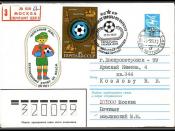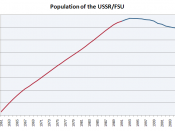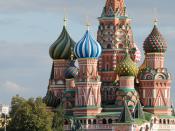The differences between the ideology of the West and of the USSR can be separated into politics, economics and culture. The political policies each party had were in direct proportion to the degree of liberty and meritocracy in their respective economic systems and thus the two should be taken into consideration together. The major Western countries had all experienced revolution, constitutionalism and nationalism in slightly disparate forms, while the USSR remained a solid unlimited monarchy until the beginning of the 20th century. Politically, this meant the countries that had had longer periods of time to evolve into democracies were the spearheads of international economics. Communism acted as catalyst and steroids for a USSR that could not afford to slowly evolve into a democracy or wait for their people, ninety-percent of whom were uneducated peasants, to adapt and uphold a functional liberal society. The Russian people, especially volatile after their revolution, needed a nationalistic government that would take care of economic arenas and be told what to do.
And thus the USSR's economic method of centralizing all the resources and allocating them according to a single-partied government that will not bicker time away just to get into office, is the most practical way to catch up to the developed West. Thus communism was Russia's ineluctability. Capitalism, on the other hand, was inescapable for the West that possessed modern facilities, a more solidly developed middle class, and unlike Russia, a lack of xenophobia, opening the US and the European countries to compete and collaborate with each other. A meritocracy can only be set loose when the nationals are skilled, educated and assertive enough to enter a free and competitive economy. Essentially, an economy running on merit is exactly what the capital West adopted. Therefore, politically and economically, the differences between the...


